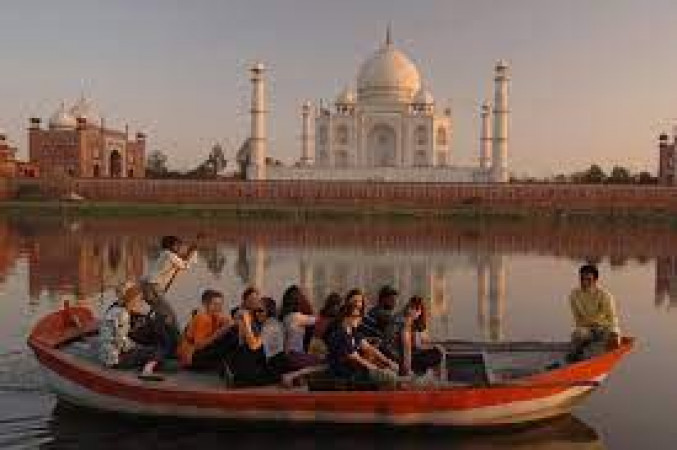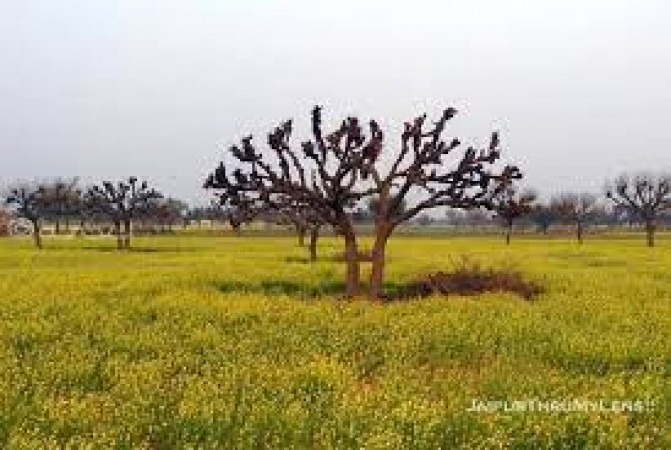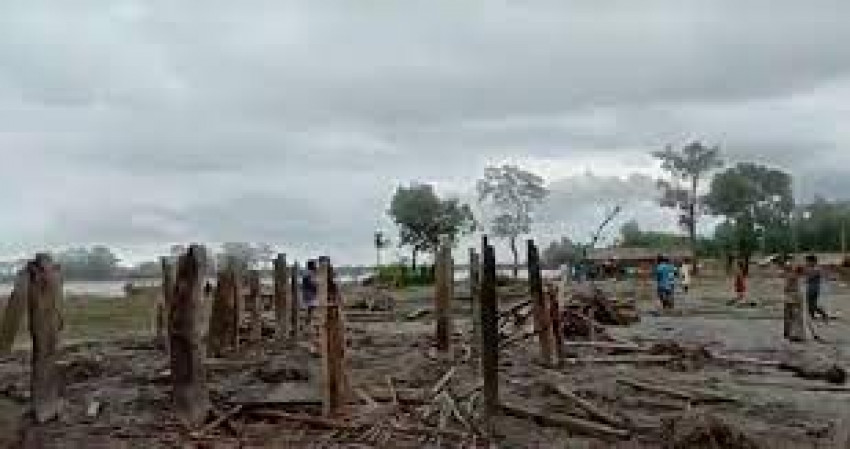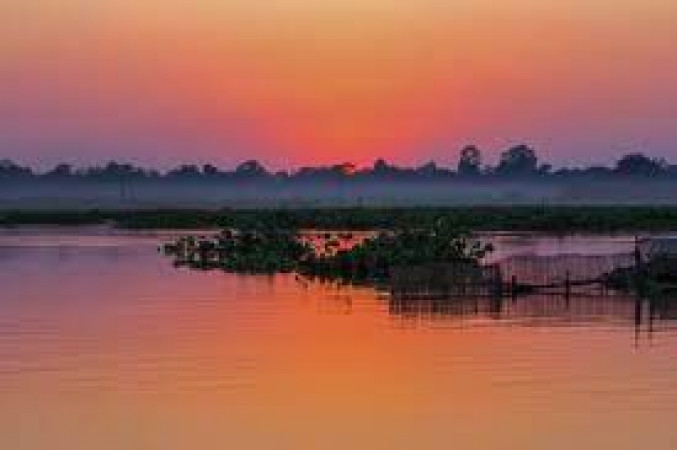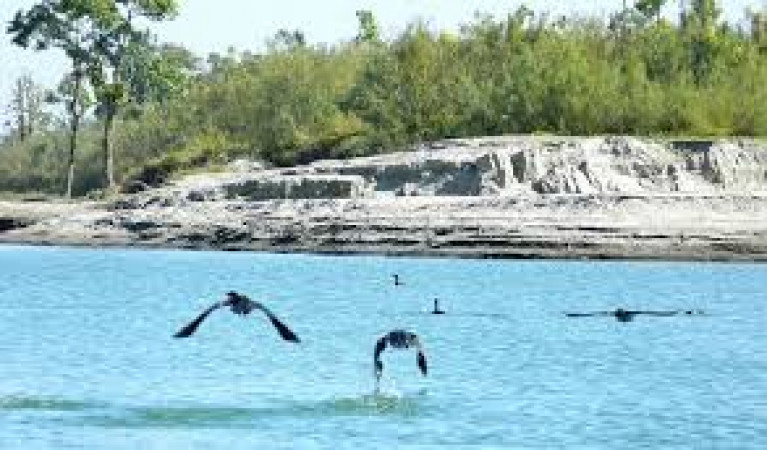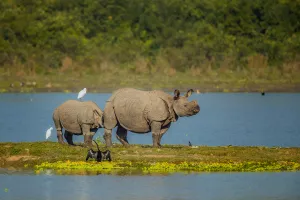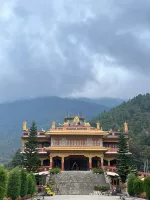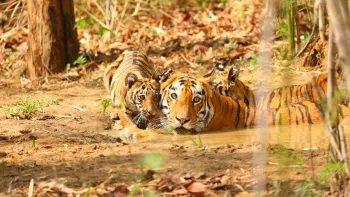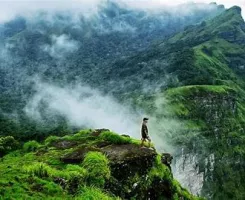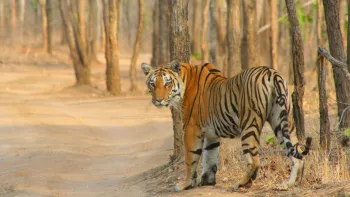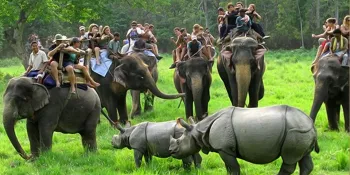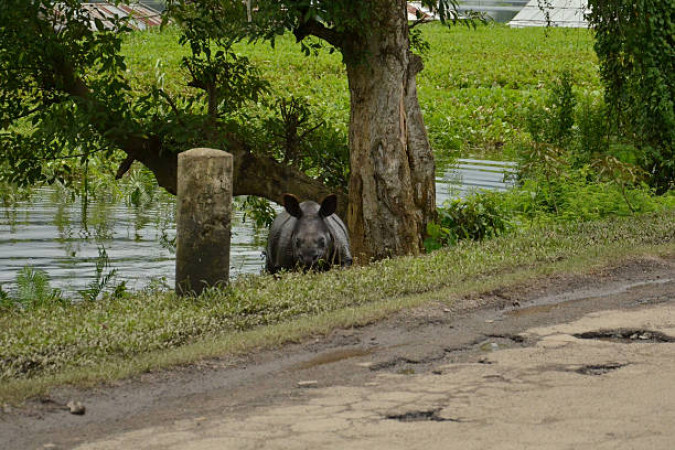
Dibru Saikhowa National Park
Duration
2 to 4 Days
2 to 4 Days
Best time to visit
Nov-Feb
Nov-Feb
Theme
Wildlife, Waterfront
Wildlife, Waterfront
Dibru Saikhowa National Park Travel Guide
Dibru Saikhowa National Park is located in the northeastern state of Assam, India. It is known for its unique combination of wetlands, grasslands, and forests, making it a haven for diverse flora and fauna. The park is home to the endangered white-winged wood duck and is a vital habitat for feral horses and Gangetic river dolphins. With its rich biodiversity and stunning landscapes, Dibru Saikhowa National Park attracts nature lovers and wildlife enthusiasts from around the world.Top Attractions in Dibru Saikhowa National Park
- Boat Safari on the Dibru River
- Spotting Gangetic Dolphins
- Bird Watching at Maguri Beel
- Trekking in the Mishmi Hills
Dibru Saikhowa National Park is Famous for
Dibru Saikhowa National Park is most famous for its unique blend of wetlands and grasslands, offering a pristine environment for diverse wildlife.Top Attractions in Dibru Saikhowa National Park
- Exploring the Guijan Grasslands
- Visiting the Deban Reserve Forest
- Photographing the Feral Horses
- Interacting with the Local Mishing Tribes
What's Great about Travelling to Dibru Saikhowa National Park?
- Opportunity to witness rare wildlife species
- Untouched natural beauty
- Peaceful and serene environment
What's Not So Great about Travelling to Dibru Saikhowa National Park?
- Limited accommodation options
- Remote location may require long travel hours
- Restricted areas for tourists
Travel Tips for Dibru Saikhowa National Park
- Obtain necessary permits before entering the park
- Carry insect repellent and sunscreen
- Respect the local wildlife and natural habitats
Important Dibru Saikhowa National Park trip information
- Ideal Duration: 2-3 days to explore the park fully
- Best Time to Visit: November to March for pleasant weather
- Nearby Airports and Railway Stations: Dibrugarh Airport and Tinsukia Railway Station
Top 7 Places to visit in Dibru Saikhowa National Park
Per Person
24,400
*EXCLUDING APPLICABLE TAXES Per Person
40,000
*EXCLUDING APPLICABLE TAXES Per Person
18,000
*EXCLUDING APPLICABLE TAXES Per Person
34,990
*EXCLUDING APPLICABLE TAXES Per Person
15,000
*EXCLUDING APPLICABLE TAXES Per Person
19,000
*EXCLUDING APPLICABLE TAXES 5.0 Ratings
( 8 Reviews )
( 8 Reviews )
FAQ's on Dibru Saikhowa National Park
Q1: What is the best time to visit Dibru Saikhowa National Park?
The best time to visit Dibru Saikhowa National Park is from November to April when the weather is pleasant and dry. This period is ideal for wildlife sightings, bird watching, and exploring the lush landscapes without the hindrance of heavy rainfall. Additionally, the winter months offer a higher chance of spotting endangered species like the Gangetic River Dolphin.
Q2: Do I need a visa to travel to Dibru Saikhowa National Park?
Tourists visiting Dibru Saikhowa National Park in India require a valid Indian visa. Ensure your passport has a minimum of six months validity from the date of entry. Travelers from certain countries may be eligible for an e-Visa. It's important to check the latest visa requirements and regulations before planning your trip.
Q3: What are the must-visit attractions in Dibru Saikhowa National Park?
Dibru Saikhowa National Park is known for its diverse flora and fauna. Must-visit attractions include Maguri Beel for bird watching, Dolphin Point for Gangetic River Dolphin sightings, and trekking in the mesmerizing grasslands. Boating in the Dibru River offers a unique experience to explore the park's beauty.
Q4: Is Dibru Saikhowa National Park a safe place to travel?
Dibru Saikhowa National Park is generally safe for tourists. However, it is advisable to follow the guidelines of the park authorities, avoid isolated areas, and take necessary precautions while exploring the wilderness. Be cautious of wildlife encounters and adhere to safety instructions during activities.
Q5: What is the local currency in Dibru Saikhowa National Park and can I use credit cards?
The local currency in Dibru Saikhowa National Park is the Indian Rupee (INR). While credit cards may be accepted in major hotels and establishments in nearby towns, it is advisable to carry cash for transactions within the park. ATMs may not be readily available in remote areas, so plan accordingly.
Q6: What is the local cuisine like in Dibru Saikhowa National Park?
The local cuisine in Dibru Saikhowa National Park offers a delightful blend of Assamese flavors. Enjoy traditional dishes like Assam Laksa, Maasor Tenga (sour fish curry), and Aloo Pitika (mashed potatoes). Vegetarian options like Khar and Poitabhat are also popular. Be sure to try the aromatic Assam tea for a refreshing experience.
Q7: What transportation options are available in Dibru Saikhowa National Park?
Transportation options in Dibru Saikhowa National Park include local buses, taxis, and private car rentals. Guided tours and boat rides are popular for exploring the park's waterways. It is recommended to hire a local guide for wildlife safaris and navigating through the park's diverse terrain.
Q8: Are there any cultural norms or etiquette I should be aware of when visiting Dibru Saikhowa National Park?
When visiting Dibru Saikhowa National Park, it is important to respect the local customs and traditions of the indigenous communities. Dress modestly, seek permission before photographing locals, and refrain from littering in the park. Interact with the locals respectfully and embrace the rich cultural heritage of the region.
Q9: I am a travel agent. How can I buy travel leads of Dibru Saikhowa National Park?
Register yourself as a travel agent at agents.tripclap.com and then you can buy travel leads to Dibru Saikhowa National Park once your account is approved. For more details contact our support team at +91-8069186564 or support@tripclap.com
